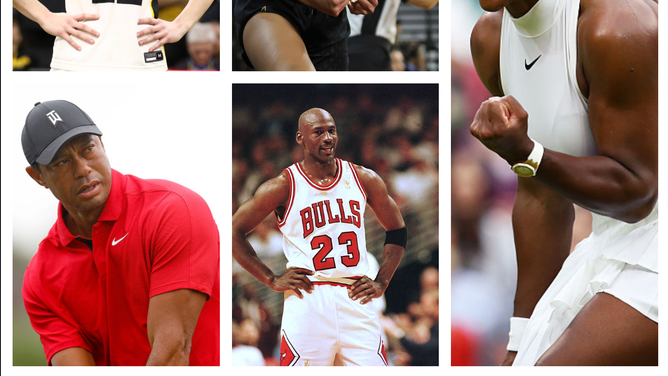History Contradicts A'ja Wilson's Claim That Caitlin Clark's Popularity Is Linked To Being White
A reporter asked Las Vegas Aces forward A'ja Wilson what role race may have played in Caitlin Clark's rise to stardom. "Huge," she responded.
"I think a lot of people may say it’s not about black and white, but to me, it is. It really is because you can be top-notch at what you are as a black woman, but yet maybe that’s something that people don’t want to see," Wilson told the Associated Press.
"They don’t see it as marketable, so it doesn’t matter how hard I work. It doesn’t matter what we all do as black women, we’re still going to be swept underneath the rug. That’s why it boils my blood when people say it’s not about race because it is."
Wilson joins a lengthy list of black athletes and pundits who've attributed Clark's popularity to her race – from Sheryl Swoopes to Gilbert Arenas, from writers at The Athletic to USA Today.
The argument goes as follows: America is a majority-white country. Fans relate and support players who look and sound like them. Thus, naturally, white players are more popular than black players.
Here's the problem: history and facts contradict Wilson's hypothesis.
Over 60% of Americans are white. Yet black athletes are disproportionately more popular than white athletes in the United States. Caitlin Clark is an outlier.
Sure, Clark is infinitely more famous than her (black and white) contemporaries. But so was Michael Jordan. So was Serena Williams. And Tiger Woods. And Floyd Mayweather. And LeBron James.
Anthony Edwards is the most talked-about basketball player in the NBA playoffs, despite Nikola Jokic winning his third MVP in four seasons.
Patrick Mahomes, who is bi-racial, identifies as black. NFL VP of Broadcast Planning Mike North confirmed last week that Mahomes is the most consistent singular (not counting teams) television draw in the NFL.
Similarly, Stephen A. Smith is the most recognized and watched personality in sports media. Charles Barkley might be second.
Black people account for just 12.6% of the U.S. population. So, for the likes of Jordan, LeBron, Serena and Tiger to reach such transcendent stardom – they had to capture the interest of many, many white Americans.
They did. They still do.
No wonder A'ja Wilson didn't provide any facts to support her claim. She couldn't find any.
Shoe, merchandise, and ticket sales all disprove the argument that fans favor white athletes.

All photos via Getty.
Caitlin Clark achieved stardom the same way as the black athletes before her, by being the best (setting the all-time NCAA scoring record) and most compelling athlete in her field.
Sports are the ultimate meritocracy.
White athletes have long played second fiddle to their black counterparts. But in an unexpected departure from the norm, a white girl has emerged as the face of women's basketball.
As former college basketball player and Fox Sports Radio host Doug Gottlieb explained last year, black players often look down upon white athletes. "Most black people think white [people] can’t hoop and need special treatment in order to be viewed on the same level," Gottlieb said.
That feeling – that white players are inferior yet receive special treatment to compete – creates inherent resentment.
Society grooms young black people to view white people as enemies, as their former oppressors. Professional basketball is a majority-black sport. Now, here is a straight white girl from Iowa coming for the throne with the nation's interest behind her.
Hence, the hostility from black players toward Clark.
Ultimately, A'ja Wilson cannot bring herself to accept that a white girl is a bigger star than her. So, she is using race to undermine Caitlin Clark's popularity and excuse her lack of.
I know, facts too often run afoul of a good race bait.